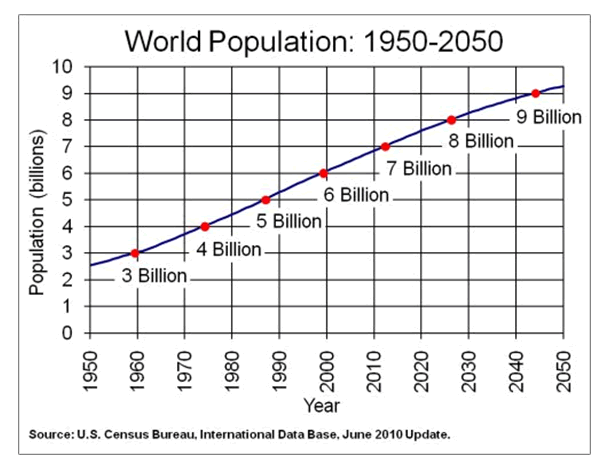BHP and Potash, Inflation, Stealing Calories From the Future
Commodities / Food Crisis Aug 19, 2010 - 02:36 AM GMTBy: Dan_Denning

 Hmm. Let's see. Last time BHP Billiton made a tilt at a high-profile, big money acquisition, the whole world went pear-shaped. As the statisticians say, correlation is not causation. But M&A activity seems to pick up when company directors have run out of other ways to increase earnings. It does not always work out well for shareholders. Case in point, BHP's shares are down today by 3.5%.
Hmm. Let's see. Last time BHP Billiton made a tilt at a high-profile, big money acquisition, the whole world went pear-shaped. As the statisticians say, correlation is not causation. But M&A activity seems to pick up when company directors have run out of other ways to increase earnings. It does not always work out well for shareholders. Case in point, BHP's shares are down today by 3.5%.
In case you missed it, Marius Klopper's outfit made a $43 billion bid for Canadian firm Potash. The bid values the world's largest fertiliser producer at $130 per share. That's a 16% premium to Monday's closing price. It's also nowhere close to what Potash thinks it's actually worth.
Potash CEO Bill Doyle told Bloomberg that the bid was a, "highly opportunistic and an ill-disguised attempt to exploit an anomaly in the equity market valuation of Potash Corp." Tell us what you really think Bill. Analysts say a bid north of $150 per share more accurately values the company.
As pick-up lines go, you'd have to say BHP's first attempt - what's a nice Canadian fertiliser company like you doing in the blue light district of the share market - was a failure. So the bid has gone hostile with BHP set to appeal directly to Potash shareholders. They say every man has his price, don't they (whomever they are)?
There are two interesting parts to this news - aside from the valuation mating dance. The first is the timing. This would be the biggest merger since 2009, when Merck went after Schering Plough. Mergers don't always come at market tops. But there does seem to be a few cases of CEOs riding high on confidence prior to making an acquisition that destroys shareholder value (AOL-Time Warner). And don't forget the proposed BHP-Rio Tinto stitch up became public at the apex of commodity prices.
The second interesting part to this news - which hits us especially hard right before lunch - is that it's about food. Potash is used to increase crop yields. It's the potassium that does it. Incidentally, potassium has the chemical symbol "K" on the periodic table which comes from the Latin "Kalium" which itself apparently comes from the Arabic "al-kali," or plant ashes.
But back to hungry people. There are more of them. The chart below shows how quickly the world's population has grown since crop yields started increasing via mechanised farming, the green revolution, and petroleum-based fertilisers. The world's population has doubled in roughly 50 years.

A lot of those people are in this part of the world, the Eastern hemisphere. They are all just as hungry as people in the West, you would presume. And if you'll indulge us for a second there's an intriguing point to be made here: inflation increased calories consumed per day. It makes perfect sense when you think about it.
If the creation of money out of thin air, not backed by anything, accelerates the use of land, labour and capital, why would food be any different. If you bring forward housing demand, say, by making grants and keeping credit cheap, aren't you "bringing forward" people with cheap money and cheap energy? And aren't you accelerating the depletion of arable land by increasing the demands upon it because of the "brought forward" population?
This reveals the central and egregious blunder of the Keynesians. You enjoy the short-term gain without thinking of the long-term pain. Any kind of artificial stimulus that makes things appear easier now usually makes things worse later. You rob from future demand and you usually accelerate the misallocation of capital (giving everyone $900 to spend in a country with one of the highest household-debt-to-disposable-income ratios in the world).
Inflation stimulates an unhealthy appetite. It makes you fat - right before it starves you.
The Daily Reckoning
http://www.dailyreckoning.com.au
Dan Denning is the editor of The Daily Reckoning Australia. He's also the author of 2005's best-selling The Bull Hunter (John Wiley & Sons). A former specialist in small-cap stocks, Dan draws on his network of global contacts from his new base in Melbourne, Australia.
Copyright © 2010 The Daily Reckoning - All Rights Reserved Disclaimer: The above is a matter of opinion provided for general information purposes only and is not intended as investment advice. Information and analysis above are derived from sources and utilising methods believed to be reliable, but we cannot accept responsibility for any losses you may incur as a result of this analysis. Individuals should consult with their personal financial advisors.
© 2005-2022 http://www.MarketOracle.co.uk - The Market Oracle is a FREE Daily Financial Markets Analysis & Forecasting online publication.


